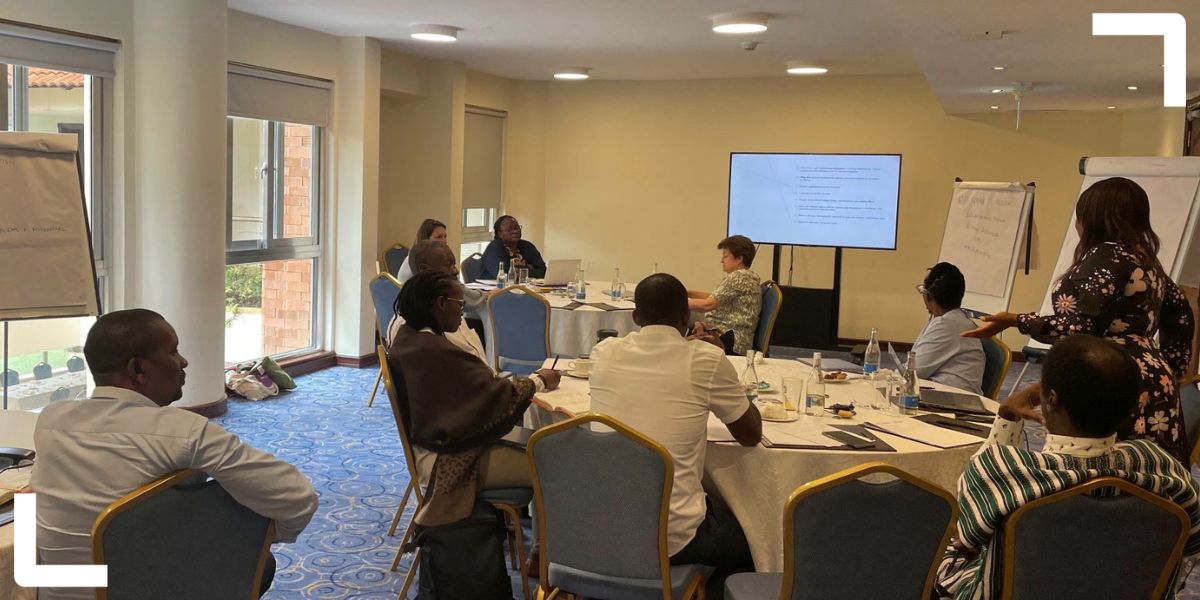By Rosebella Apollo, ACRC research uptake officer
Community representatives, academic researchers and practitioners from the African Cities Research Consortium (ACRC) convened for a three-day workshop in Nairobi on 23 November, to advance preparations for the implementation phase of the programme.
It is envisioned that action research projects based on co-design, and co-production will build new knowledge and test innovative solutions, to address critical complex challenges in African cities. The action research seeks to catalyse urban transformation and urban reforms, including enhancing service delivery and equitable local governance systems.
The workshop focused on exploring learning approaches with the potential to address priority complex problems (PCPs), leading to economic development and poverty reduction while addressing salient issues relating to climate change in the ACRC cities.
Unpacking action research experiences
Working collaboratively through an iterative process, the workshop participants refined the action research component of the ACRC project, sharing a range of experiences, reflections and insights that enriched the action research discourse.
Participants drew on experiences from action-oriented projects, including an urban water initiative in Accra; the Mukuru Special Planning Area and community action research on police brutality in Mathare, Nairobi; a WASH project in Chinhoyi, Zimbabwe; the Orangi low cost housing programme in Pakistan; and a clean energy project in Kampala. These provided a rich blend of insights and reflections, and enhanced our understanding of what action research is and what it is not.
The examples highlighted some of the key characteristics of action research as a highly iterative and organic community-led and collaborative process, which focuses on co-creation, co-production and co-implementation of ideas and solutions to address community challenges. To effectively identify and secure buy-in from different actors, a thorough stakeholder and political economy analysis is a critical step in the preparations for action research, ensuring that prevailing circumstances are properly documented and considered, and serve as a building block for action research.
Whilst multisectoral and multi-institutional capacities were recognised and valued for their ability to coalesce support for reforms, participants were also conscious of the need to create safe spaces for divergent actors to challenge learning and accommodate creativity, while balancing the power dynamics and interests that emerge from engagement between a myriad of actors. The programme was encouraged to invest in capacity-building initiatives, peer learning, and feedback avenues for the community, for whom change – even small-scale change – is crucial.
It was proposed that the implementation phase adopts approaches and methodologies that ensure that communities are actively involved not only in data collection, but also in data analysis and all stages of the process towards defining solutions. In addition, participants agreed on the need for the design and selection of appropriate research tools, that facilitate and capture community views and interpretation, while helping to build a narrative around issues within these communities. They also acknowledged the importance of contextualising action research methods to ensure that tools are fit for purpose, for the areas and themes, and also taking account of any inhibitors to participation, such as language, and addressing these appropriately.
To safeguard co-production and co-implementation in the cities, workshop proceedings reiterated that each project proposal would be jointly defined. Additionally, it was agreed that a strategic leadership approach would be adopted, based on legitimacy, expertise and capability to articulate the shared vision.
Challenges and lessons
The capacity to anticipate risks or problems and visualise flexible pathways for solutions will be critical in the action research phase. Based on past experiences, potential challenges to expect include limited resources (budgetary, human and stringent donor timelines), accountability problems, unintended consequences of programming, power imbalances and competing interests. During the design of action research projects, it will be worth provisioning for managing potential reputational risks, political risks (from community, implementation teams, politicians), economic volatility, and both anticipated and unexpected delays.
Lessons from this workshop will be adapted to design and provide guidelines for the action research phase of the programme. The vision of this phase is to use evidence from the foundation phase to support coalitions of urban reformers in selected African cities.
Note: This article presents the views of the author featured and does not necessarily represent the views of the African Cities Research Consortium as a whole.
The African Cities blog is licensed under Creative Commons Attribution-NonCommercial-NoDerivatives 4.0 International (CC BY-NC-ND 4.0), which means you are welcome to repost this content as long as you provide full credit and a link to this original post.
Header photo credit: Diana Mitlin


